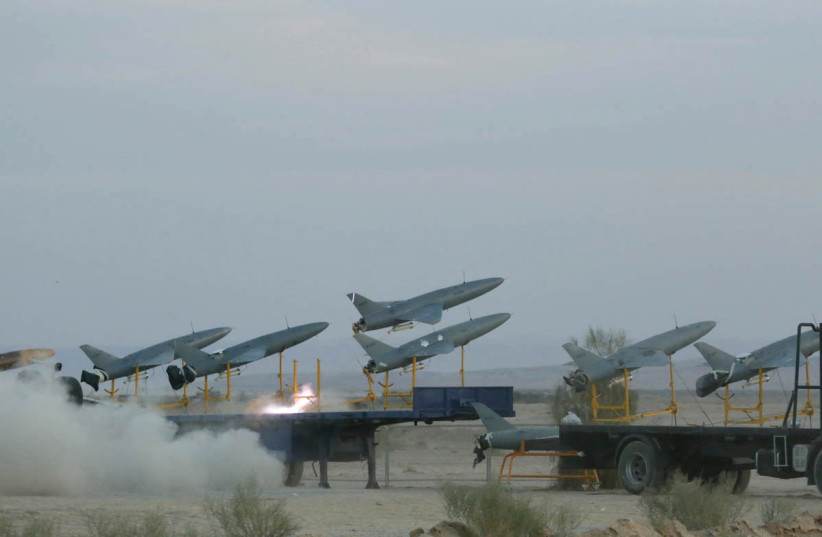Recent events have irrevocably cemented the Islamic Republic of Iran’s image as an irrational actor on the world stage. Since the Islamic Revolt in 1979, the regime has consistently showcased its penchant for the theatrical, with its ruling mullahs reveling in public displays of mourning to assert their righteousness in a world they depict as unjust. This self-serving and delusional perspective has perpetuated a saga of human rights violations and state-sponsored terrorism for nearly half a century, underpinned by a disturbing reliance on terror.
October 7 marked a chilling reaffirmation of Tehran’s approach when numerous global media outlets, which typically maintain a semblance of neutrality, lined up surprisingly in support of Tehran’s narratives. These outlets played down the Iranian regime’s directive to its widespread network of terrorist proxy forces, which promptly mobilized under Ali Khamenei’s orders. This mobilization followed closely on the heels of Khamenei’s threats against Israel just days before the black Shabbat, after which he quickly retreated into a narrative of denial typical of the regime, suggesting a disinterest in war.
However, the situation escalated dramatically this past Saturday night, when Iran, disregarding international calls for restraint, launched projectiles from its territory toward Israel. This marked a significant escalation in the Islamic Republic’s pattern of issuing empty threats and engaging in acts of violence, a pattern that European and American powers initially failed to take seriously—thus underestimating Tehran’s penchant for creating crisis.
Earlier, on April 1, Israel was compelled to eliminate a key Hamas architect operating beside the Iranian Consulate in a building known to be a hub for meetings among the terrorist commanders of the Islamic Republic Guards Corps (IRGC) and Quds Force (QF). Iran’s immediate claim that these operations occurred on Iranian soil starkly highlighted the regime’s manipulation of nationalistic sentiments to rally domestic support for its own survival strategy.
Far from being an isolated actor, Iran’s aggressive posturing has drawn its own citizens into an unwanted war, a tragic continuation of the regime’s focus on exporting terrorism and sustaining poverty within its borders, rather than improving the welfare of its people. The ongoing conflict is not a war the people of Iran and Israel but a direct consequence of Tehran’s radical and destructive ideologies – a war against civility and peace.

The tepid response from the White House, encapsulated by President Joe Biden’s ineffectual “Don’t,” reveals a grave misjudgment of the situation’s severity. The regime’s ongoing threats to global superpowers, including explicit warnings of attacks on American forces should they intervene, underscore the broader risks of Tehran’s aggression.
How can Israel and the world neutralize Iranian threats?
In the face of these provocations, Israel finds itself in the precarious position of having to neutralize threats to its existence, underscoring the clear aggressiveness of the Iranian regime. Not only has Tehran jeopardized the safety of its own people, but it has also endangered global peace. The optimal resolution to this crisis would extend beyond mere diplomatic engagement to encompass a complete regime change, ideally supported by international backing for a democratic transition led by recognized figures such as Crown Prince Reza Pahlavi.
Such a transition would not only potentially stabilize the region but also dismantle the vast network of terror that Tehran has woven through the Middle East.
Furthermore, if the international community continues to overlook the perils posed by the Islamic Republic’s policies, it will only permit further devastation. As we witness Iran’s descent into chaos, driven by a regime that revels in provocation and conflict, the pressing question remains: How long will the world watch before it acts to restore peace and sanity in a region tormented by the specter of an irrational and dangerous government?
The necessity for decisive action has never been more apparent as the costs of inaction continue to mount, threatening not just regional stability but global peace as well. The world must recognize that supporting a shift towards a more democratic Iran is not merely an option but an imperative, one that could lead to the dissolution of a regime that has, for too long, propagated chaos and destruction both domestically and internationally.
By fostering a democratic Iran, the international community can help to defuse one of the world’s most volatile regions.
This support should not merely be rhetorical but material, providing the means for Iranians themselves to reclaim their country from the clutches of tyranny. As Iran teeters on the brink of deeper conflict, the global community must not only advocate for peace but actively participate in building it. This involves a concerted effort to support opposition groups and civil society initiatives within Iran that align with democratic values and human rights.
Only through such comprehensive and sustained efforts can hope to be restored not just to Iran but to the entire Middle East, heralding a new era of stability and cooperation in a region long plagued by conflict. The need for decisive action has never been clearer, as the cost of inaction continues to climb, threatening not just regional but global stability.
The writer is a counterterrorism analyst and Middle East studies researcher based in Washington, with a particular focus on Iran and ethnic conflicts in the region. His newly-published book is The Black Shabbat, published in the US. Follow him on X @EQFARD and at erfanfard.com.
